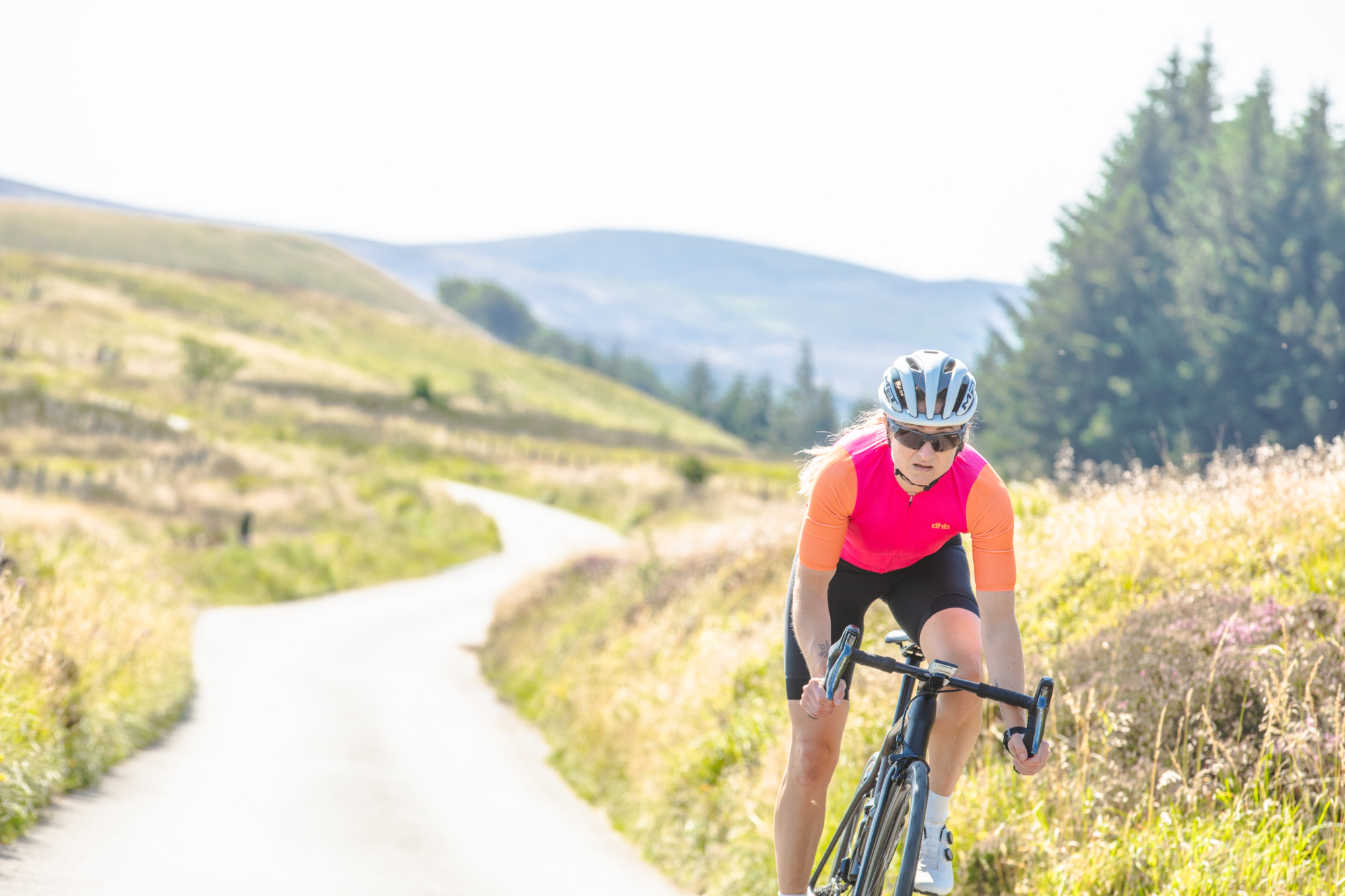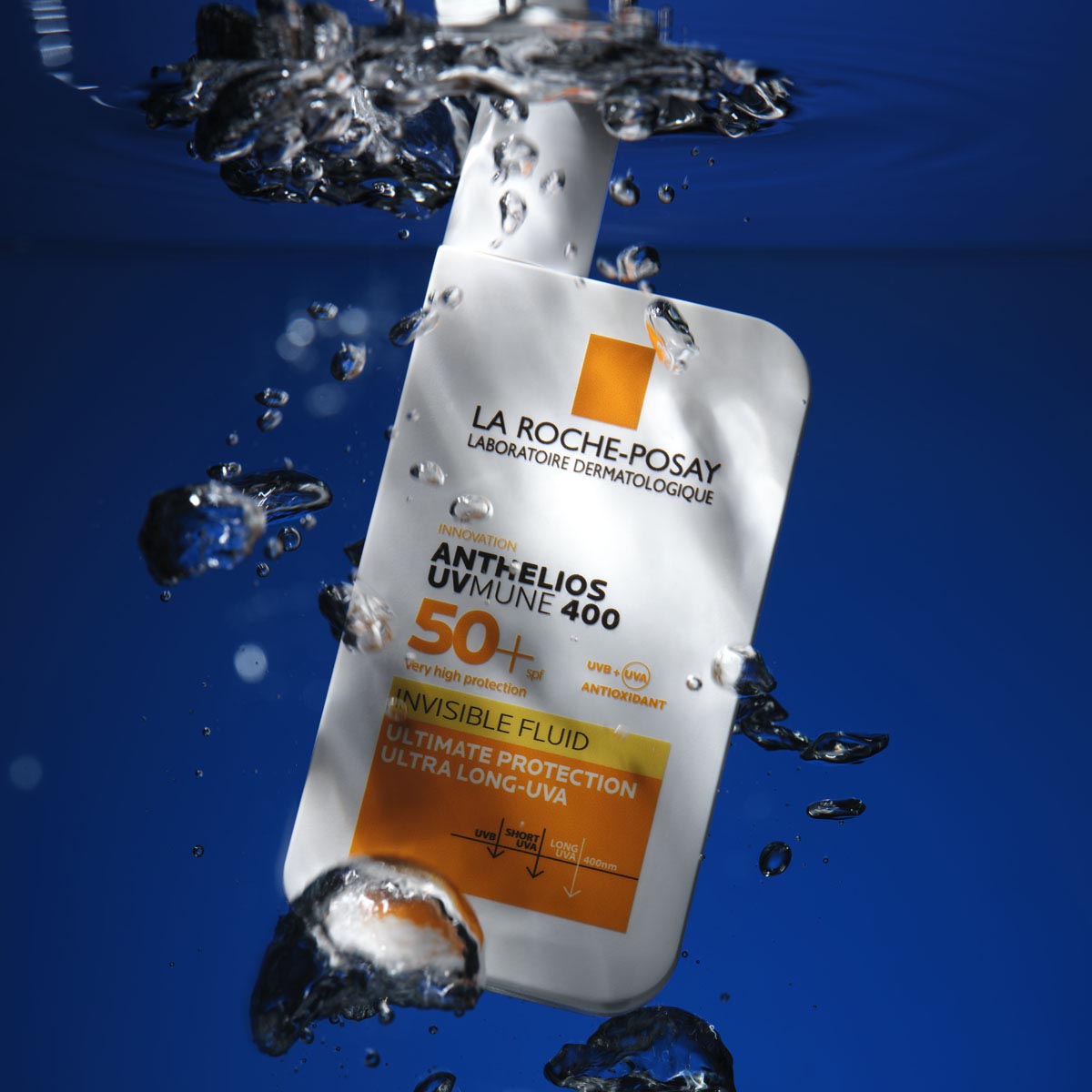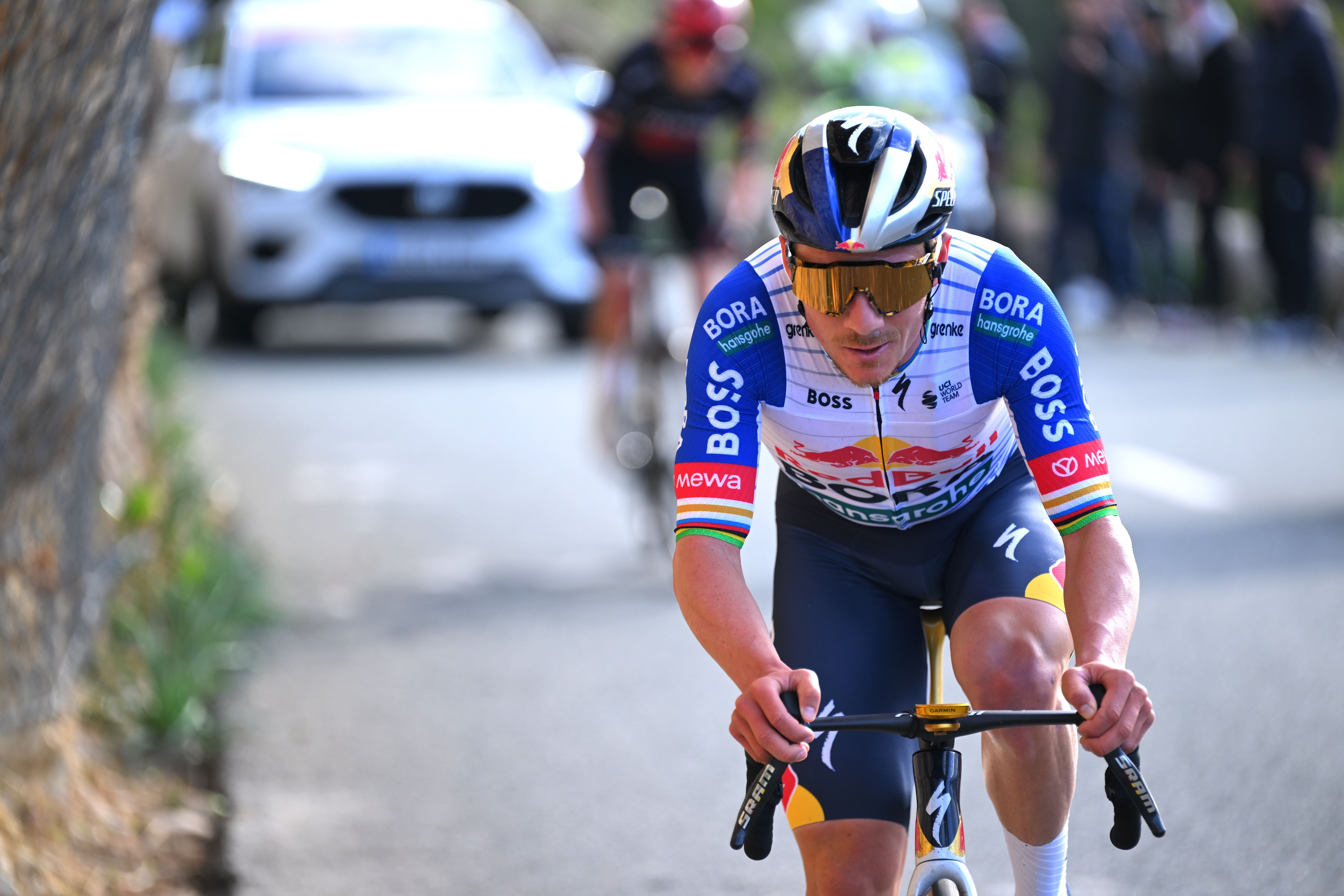Why cyclists should use La Roche-Posay Anthelios UVMune 400 this summer
With comprehensive UV protection, a non-greasy texture and resistance to sweat, La Roche-Posay Anthelios UVMune 400 can help you stay sun safe while on the road.

With unprecedented, record-breaking temperatures across the UK this summer, many cyclists have adapted their routines to deal with the heat – and it’s particularly important to think about the damage the sun can do to your skin.
When you’re out on your bike you’re particularly vulnerable, with any exposed areas of skin – such as your hands, thighs and the back of the neck – susceptible to sunburn and sun damage.
“Cyclists generally have a large amount of lifelong sun exposure,” explains London-based dermatologist Dr Hiva Fassihi. “Cycling is a sport enjoyed at all ages, in all seasons, and whether for commuting or exercise, cyclists are usually outdoors for long periods of time, unable to take shelter. This chronic exposure to sunlight can result in significant ultraviolet radiation damage to the skin, increasing the risk of sunburn, photoaging and skin cancer.”
No rider wants to take a summer-long break from cycling, so it’s important you consider protecting your skin from the harmful effects of the sun. There are dozens of SPF products on the market, but as a cyclist you’ll be looking for something that gives you the best protection across the whole UV spectrum, doesn’t sting your eyes or leave your skin feeling greasy, and – crucially – is resistant to sweat.
These are all good reasons why La Roche-Posay Anthelios UVMune 400 could be as essential to keeping you on the road as your helmet and tyres.
Ideal for cyclists
La Roche-Posay is the #1 dermatologist recommended brand in the UK (based on an A+A study of 78 consultant dermatologists, January-March 2021) and their Anthelios suncare is the brand’s best-selling range.
The UV filters in Anthelios UVMune 400 SPF50+ offers excellent protection against UV rays from the sun, both UVB (strongest in summer, cause sunburn) and UVA (present all year round, lead to premature ending). The lightweight, fragrance free formula is suitable for sensitive skin, leaves no white residue when you apply, and is sweat, water and sand resistant, making it ideal for cyclists and other athletes.
“Anthelios contains an intelligent polymer that entraps oils and UV filters inside droplets surrounded with water,” says Dr Fassihi. “When applied on the skin, the water evaporates, forming a homogenous and continuous net on the skin. This technology locks in UV filters in an ultra-thin and homogenous film with enhanced UV filter efficacy in a light and non-greasy texture.”
The new and improved Anthelios UVMune 400 SPF50+ also contains Mexoryl 400, a new filter designed to protect against the most penetrative UV rays. New research from La Roche-Posay shows that longer wave UVA rays are able to penetrate deeper into the skin than both UVB and shorter UVA rays. This can result in skin damage in the form of wrinkles, slack skin and even skin cancer, so you really want to keep these longer UVA rays at bay.
“Mexoryl 400 specifically targets the longest UVA rays, wavelengths not efficiently covered by current sunscreens,” Dr Fassihi explains. “Mexoryl 400 is able to prevent long UVA induced damage, which include oxidative stress and indirect DNA damage in skin cells. As a result this filter is more effective against skin photoaging, wrinkles and pigmentation. In addition, Mexoryl 400 is also tested for its efficacy and mildness making it suitable for sensitive skin too. .”
So to keep you and your bike on the road through this long, hot summer, look out for La Roche-Posay Anthelios UVMUNE 400 SPF50. It’s available to buy now and throughout July and August, you can save 20% at Boots.

Dr Fassihi’s sun protection tips for cyclists
1. Wear sunscreen every day
Protecting your skin from the harmful effects of the sun isn’t just something you need to think about in the summer months. “I would encourage cyclists to wear their sunscreen every day, regardless of how bright and sunny it appears outside,” says Dr Fassihi. “It is important to remember that UVA, the main cause of skin ageing, is present all year round, even on dull, cloudy days.”
2. Apply before you go out in the sun – and often
While the filters in modern sunscreens can block out harmful rays for up to eight hours, you should apply sunscreen much more regularly than that. “Any form of exercise will result in sweating and rubbing off of the sunscreen from the surface of the skin,” explains Dr Fassihi. “For this reason, sunscreens need to be applied generously and thickly to all exposed sites at least 20 minutes before going out, and then reapplied every two hours.”
3. Avoid sunburn
“It is essential to avoid sunburn,” states Dr Fassihi. “Many people do not apply their sunscreen 20 minutes before going out as recommended. Instead, they wait until they start to sunburn and then apply. By that point it is too late – the damage is done. ” Forward thinking is key to effective protection!
4. Don’t rely on sunscreens alone
While sunscreens are an essential tool for protecting your skin, your behaviour and choice of clothing are just as important. As Dr Fassihi explains, “For optimal protection, sunscreens must be used in conjunction with sensible sun-exposure behaviour, and keeping covered with a hat and appropriate clothing. The use of UVR protective clothes (UPF50), caps, sunglasses is important. If possible, cyclists should avoid training in the middle of the day when UVR levels are at their highest..”
The latest race content, interviews, features, reviews and expert buying guides, direct to your inbox!
Founded in 1891, Cycling Weekly and its team of expert journalists brings cyclists in-depth reviews, extensive coverage of both professional and domestic racing, as well as fitness advice and 'brew a cuppa and put your feet up' features. Cycling Weekly serves its audience across a range of platforms, from good old-fashioned print to online journalism, and video.
-
 Unbound, Ironman and ski mountaineering: Michael Woods unveils post-WorldTour privateer schedule
Unbound, Ironman and ski mountaineering: Michael Woods unveils post-WorldTour privateer scheduleThe 39-year-old Canadian retired from the WorldTour at the end of 2025 but says he still has "a few more years left in the tank"
-
 Remco Evenepoel has a 100% record in 2026 – can he start dreaming of Tour de France success?
Remco Evenepoel has a 100% record in 2026 – can he start dreaming of Tour de France success?It's too early, sure, but he's my second favourite